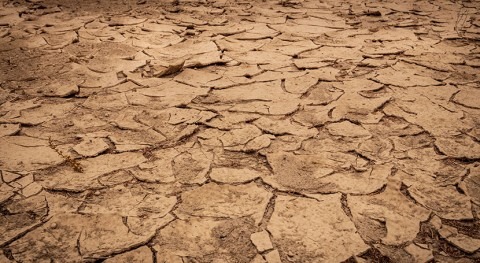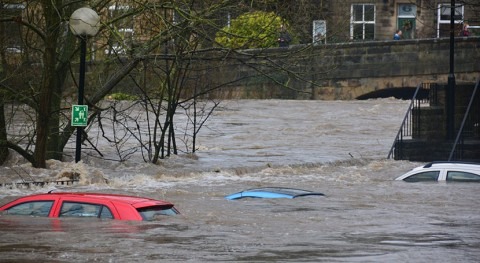Extreme weather, driven by climate change, hit every populated continent in 2019, killing, injuring and displacing millions and causing billions of dollars of economic damage, according to a new report by Christian Aid.
Counting the Cost 2019: a year of climate breakdown identifies 15 of the most destructive droughts, floods, fires, typhoons and cyclones of 2019, each of which caused damage of over $1 billion. Seven of the events cost more than $10 billion each. These figures are likely to be underestimates - in some cases they include only insured losses and do not take into account the costs of lost productivity and uninsured losses.
All of these billion-dollar disasters are linked with human-caused climate change. In some cases scientific studies have shown that climate change made the particular event more likely or stronger, for example with Cyclone Idai in Africa and floods in India and the United States. In other cases, the event was the result of shifts in weather patterns - like higher temperatures and reduced rainfall that made fires more likely or warmer water temperatures that supercharged tropical storms - that are themselves consequences of climate change.
While the report focuses on the financial cost of climate change-driven extreme weather events, in many developing countries the human cost of climate change to vulnerable communities is even higher than the financial cost, and there are many slow-onset droughts, weather change and sea encroachment that are progressively and devastatingly impacting millions of people worldwide.
The most financially costly disasters identified by the report were wildfires in California, which caused $25 billion in damage, followed by Typhoon Hagibis in Japan ($15bn) and floods in the American mid-west ($12.5bn) and China ($12bn). The events with the greatest loss of life were floods in Northern India which killed 1,900 and Cyclone Idai which killed 1,300.
- January saw floods in Argentina and Uruguay which forced 11,000 people from their homes and in Australia with some places receiving more rain than at any time since records began in 1888.
- In March Storm Eberhard swept across Europe while Cyclone Idai caused death and devastation in Zimbabwe, Mozambique and Malawi. Floods began racking up huge financial losses in the American Midwest ($12.5bn) and Iran ($8.3bn).
- May and June saw $28 billion of damage in Asia: Cyclone Fani struck India and Bangladesh, parts of China experienced their highest rainfall for 60 years and in Northern India, a stronger than usual monsoon led to floods that killed 1900 people.
- September and October saw Typhoons Faxai and Hagibis cause more than $20bn of damage in Japan as well as disrupt the Rugby World Cup which was being held there.
- In North America, Hurricane Dorian caused destruction along the Eastern seaboard from the Bahamas to Canada, killing 673 people.
- The most expensive event took place at the end of the year with $25bn worth of damage caused by wildfires in California throughout October and November.
Dr Adelle Thomas, Director of the Climate Change Research Centre at the University of the Bahamas, Senior Research Associate at Climate Analytics and one of the lead authors of the IPCC’s 6th Assessment Report, said:
“In small island developing states, such as The Bahamas where I’m from, we’ve experienced first-hand the repeated devastation caused by the climate crisis. Most recently, the record breaking Hurricane Dorian destroyed lives, livelihoods and our sense of security.
“This was unfortunately not an isolated event, as multiple hurricanes in recent years have resulted in unprecedented devastation throughout the Caribbean region. The great tragedy of climate change is that it is the poorest and most vulnerable who suffer the most, despite us doing the least to cause it.
“However as this year has shown, no continent is immune from global warming and its impacts. It’s vital that countries step up and deliver stronger action plans and much increased ambition before the COP26 summit in Glasgow in November.”








